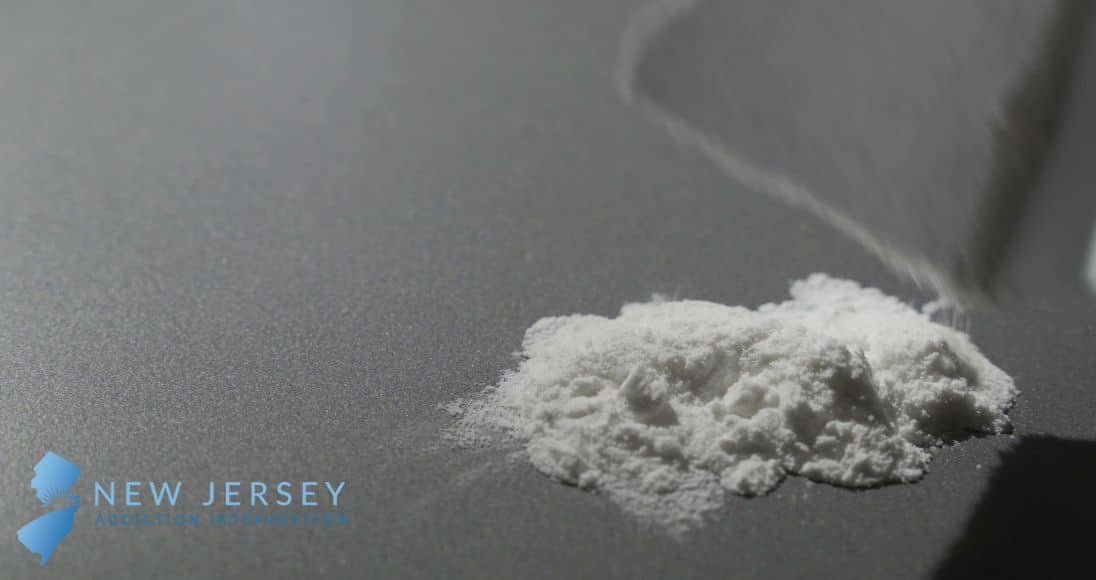In 2021, fentanyl overdoses in the United States reached an all-time high, and most opioid-related overdose deaths are attributed to the powerful synthetic opioid.[1] While fentanyl can be prescribed for pain in the form of an extended-release transdermal patch or a lozenge, illicit fentanyl use is extremely dangerous and addictive.
How long fentanyl stays in your system will vary greatly depending on the way in which you used it. Extended-release formulations of fentanyl, like patches or lozenges, stay in your body longer, while illicitly manufactured fentanyl (IMF) that is snorted or injected leaves the body faster. When taken via IV, the drug has an elimination half-life of 2-4 hours, meaning it can take 11 to 22 hours for the drug to leave your system.
What is Fentanyl?
Fentanyl is a synthetic opioid that is approximately 50 times stronger than heroin and 100 times stronger than morphine.[2] it is available via prescription but is typically only used to treat patients with chronic pain who are physically tolerant to other opioids or to treat severe pain after surgery. In prescription form, fentanyl comes in many formulations, including pills, IVs, and nasal sprays. However, the most popular forms of prescription fentanyl are transdermal patches and oral lozenges.
Another type of fentanyl, illicitly manufactured fentanyl (IMF), comes in the form of a powder and is sold unregulated on the streets. It is often sold as heroin or added to other powders or pressed pills to increase the potency and decrease the price. IMF is extremely dangerous, addictive, and deadly.
Understanding The Half-Life of Fentanyl
The elimination half-life is a measure that states how long it takes half of a dose of a substance to leave the body. The half-life of fentanyl can vary based on how it is administered. Intravenous fentanyl has a short half-life of 2-4 hours but fentanyl patches or lozenges have a long half-life of 7-17 hours.
It takes 4 to 5 half-lives for a substance to leave your body completely, so fentanyl can stay in the body for 11 to 22 hours when taken intravenously and for more than 36 hours when taken buccally or transdermally.
As your body metabolizes fentanyl and eliminates it from your system, traces of the drug known as metabolites are left behind in your body’s cells. Metabolites stay in your system longer than fentanyl does, and metabolites are what drug tests screen for.
Variations in How Long Fentanyl Stays in Your System
The total time that fentanyl and its metabolites stay in your body can vary from one person to the next. The rate of metabolism often depends on individual health factors and other variables, such as:
- Method of administration
- How long you’ve been using fentanyl – longer durations of use will cause more of the drug to build up in your system, requiring more time for complete elimination.
- The dose – higher doses will take more time to leave the system
- Frequency of fentanyl use
- Liver and kidney health
- Age, weight, body mass
- Overall metabolism
Each of these can increase or shorten the amount of time substances like fentanyl stay in your system.
How Long Will Fentanyl Show up on Drug Tests? Urine, Saliva, Blood, and Hair
There are many situations in which you may be subjected to a drug test, such as for employment or court. However, fentanyl is not commonly screened for on standard drug tests. Other opioids like heroin, oxycodone, and morphine metabolize into morphine, which can be detected on a standard drug test. But in order to screen for heroin, testing samples have to go through advanced testing.
If an advanced test is ordered, fentanyl can be detected in your urine, saliva, blood, and hair. The average detection times are:
- Urine – 8 to 24 hours after your last dose
- Saliva – 1 to 3 days after your last dose
- Blood – up to 12 hours after your last dose
- Hair follicle – up to 90 days (three months) after your last dose
How Can You Safely Detox From Fentanyl?
If you are addicted to fentanyl, abruptly stopping the drug usually isn’t life-threatening, but the withdrawal symptoms that may occur can be painful and difficult to overcome without professional help. Additionally, there is no way to quickly eliminate fentanyl from the body. Your body must go at its own pace to metabolize and eliminate the drug.
While the drug is leaving your body, you may experience symptoms of withdrawal. Fentanyl withdrawal symptoms include:
- Drug cravings
- Flu-like symptoms (sweating, chills, runny nose, body aches)
- Insomnia
- Depression and anxiety
Detoxing at a medically-supervised detox facility can help reduce your risk of severe side effects. Detox centers can prescribe medications like buprenorphine or methadone that reduce the severity of withdrawal symptoms.
Find Help for Fentanyl Abuse and Addiction Today
Fentanyl is powerful and highly addictive, so if you or a loved one are using the drug, you should seek professional help as soon as possible.
At New Jersey Addiction Intervention, we work closely with some of the highest-rated drug and alcohol rehab centers in the state. Our admissions counselors are available 24/7 to verify your insurance, assess your situation, and help you find the right fentanyl detox and treatment center for you. Call now to get started.
References:
Medically Reviewed: July 12, 2022

All of the information on this page has been reviewed and verified by a certified addiction professional.

